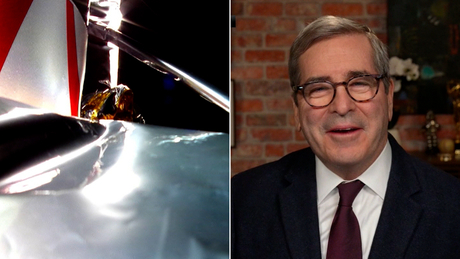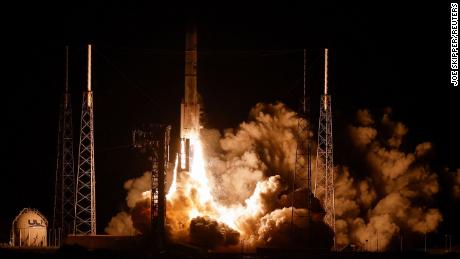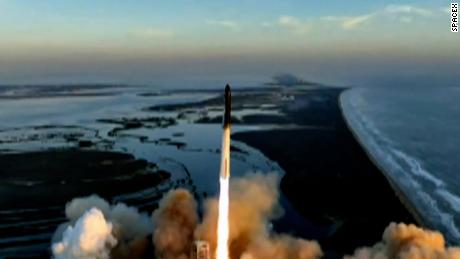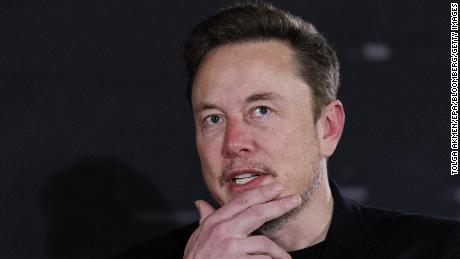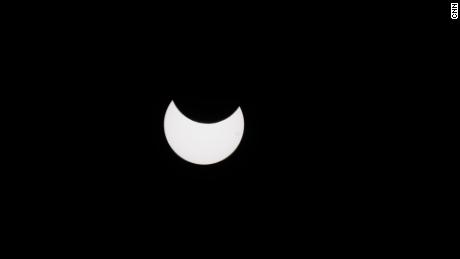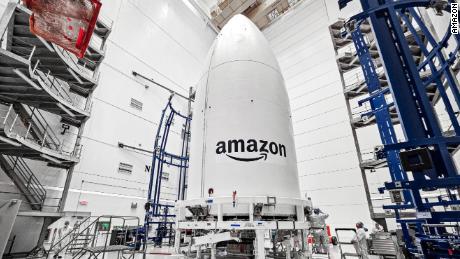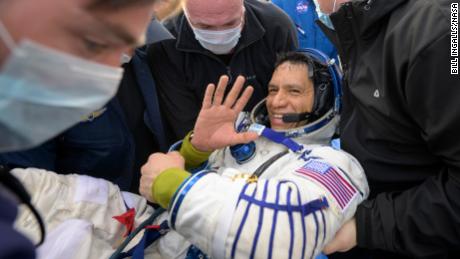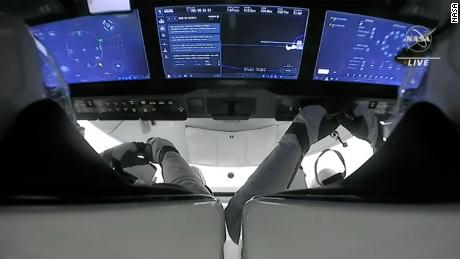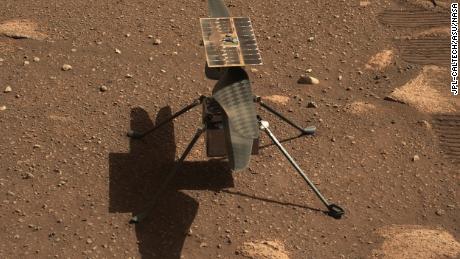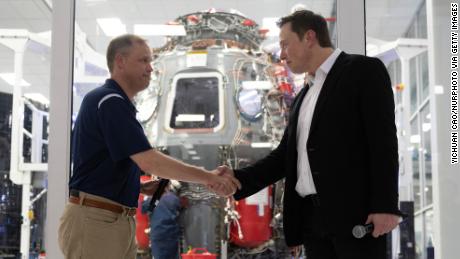Austin, Texas (CNN Business)SpaceX secured a $2.89 billion NASA contract to build spacecraft that will land astronauts on the moon for the first time in five decades.
The fixed-price contract is a major vote of confidence for Elon Musk's rocket company, as the space agency is placing a large amount of responsibility for its cornerstone human spaceflight program, known as Artemis, on SpaceX.
Friday's announcement is a blow to Blue Origin, the rocket company founded by Jeff Bezos, which had proposed working as a "National Team" alongside corporate behemoths such as Northrop Grumman and Lockheed Martin to design and build a lunar lander, and to Alabama-based Dynetics, which had put in its own bid. But ultimately, SpaceX won with its bid to use of a spacecraft the company is already developing on its own in South Texas.
That vehicle, called Starship, is also the linchpin of Musk's personal goal of landing the first humans on Mars. Test flights of early Starship prototypes have all ended in explosions thus far, but the company is rapidly building new test vehicles.
Last year, NASA announced three different contracts for lunar lander development, which were awarded to SpaceX and Blue Origin's "National Team," with the expectation that the companies would each work to bring operational vehicles to fruition and compete with each other on price and technology.
Lisa Watson-Morgan, NASA's Human Landing System or HLS program manager, said during a press call Friday that NASA had "supported each partner, providing design support analysis, subject matter experts and testing" to all those contractors during that phase.
Watson-Morgan added that NASA will continue to provide close oversight as SpaceX continues its development, "ensuring that this system will be safe for our astronauts."
Boeing is building another key element for the Artemis program: The Space Launch System or SLS, a gargantuan rocket designed to carry the Orion crew capsule to the moon.
That's the rocket that will carry astronauts to the moon's orbit, and then the crew will transfer to the Gateway space station, and from there, Starship will carry the astronauts to the moon's surface, according to Watson-Morgan.
Many in the space community have expressed their frustration that NASA has stuck by the SLS program, considering that SpaceX's Starship would theoretically be capable of completing the entire mission. The SLS development program has also been billions over budget and years behind schedule.
NASA said SpaceX will also be required to conduct an uncrewed demonstration mission, landing Starship on the moon, before astronauts will fly onboard.
Friday's surprise announcement that SpaceX would be the sole awardee comes after the space agency struggled for two years to convince Congress to adequately fund the lunar lander development program.
The space agency confirmed price was a major factor in its decision to move forward with one contractor.
The Artemis contract announcement signals that NASA is willing to put immense trust in SpaceX, which had an early history of butting heads with the space agency for its move-fast-and-break-things approach to rocket development.
But in recent years, the company has worked hand-in-hand with NASA on historic accomplishments, most notably crewed spaceflights on SpaceX's Dragon vehicles, which began last year and have carried astronauts on two flights to the Internationaol Space Station, with a third planned for next week. The Crew Dragon ushered in the return of human spaceflight from US soil for the first time since 2011.
SpaceX was also previously selected to build another version of Dragon to carry cargo to Gateway, the space station NASA plans to put in orbit around the moon to support a future moon base where astronauts can live and work for extended periods of time.
Correction: An earlier version of this headline incorrectly stated the amount of the contract awarded to SpaceX.




